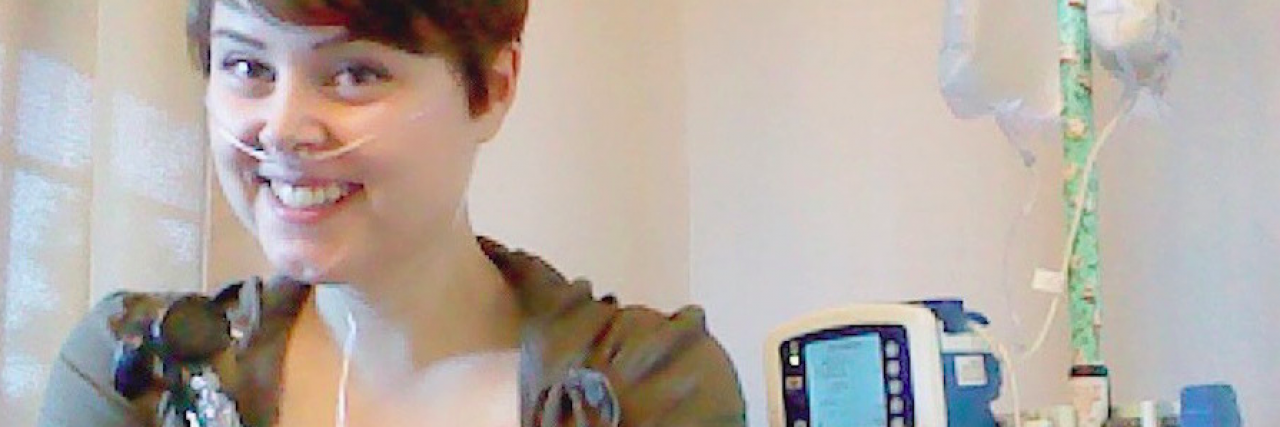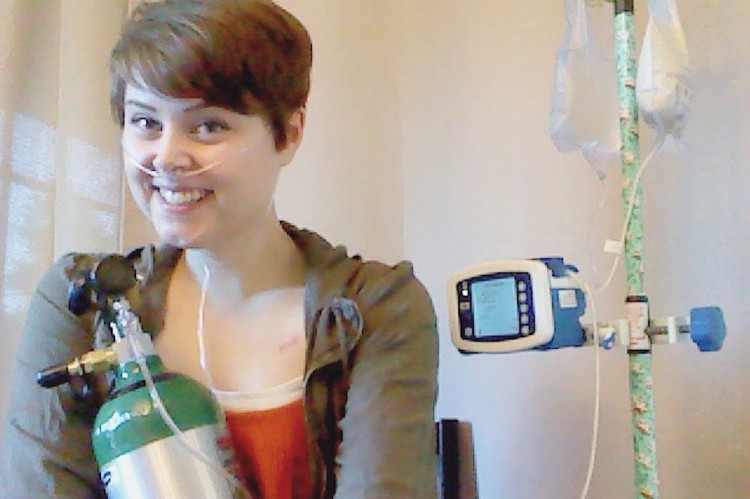As I sit in an uncomfortable waiting room chair, I look down at my new patient paperwork. The pages and pages of information to fill out seem identical to every other physician’s office on the planet. These fill-in-the blank forms have become so second nature to me I barely have to think as I jot down the information.
As I quickly fill in the first blanks — full name, age, marital status, etc. — I come to a screeching halt. One blank somehow always seems so much heavier than the rest: occupation. This word seems to sting with a sense of diminished self-worth ever since losing my career to illness last year. I went from a prospering Montessori educator to a jobless homebody in one tragic month.
While this inability to work was in no way my fault, disease had ripped my functioning body away, leaving me ill-equipped to perform any job function; I felt worthless, like my pride had been completely stripped. Instead of proudly filling in the occupation blank with the word “teacher,” I reluctantly wrote “disabled.” How did I go from a successful professional to this fragile young woman relying on state disability for income? I had always put such weight on the importance of career that I now felt undignified, like I was making no essential contribution to society. I felt useless.
One day I found myself out with a old acquaintance. We had begun to talk about our lives, and she asked me the dreaded question, “So what are you doing for work these days? Are you still teaching?” I paused, knowing the feeling I would get in my gut as I answered her innocent query. “No, I actually am unable to work due to my illness,” I replied somberly. She paused for a moment and answered, “I wish I didn’t have a job. Sitting at home, sleeping whenever you want and having no schedule. That sounds like the life!” While her comment was legitimately not meant to be disrespectful, I took a little offense. What came out of my mouth next honestly surprised even me; I curtly replied, “I am a Professional Patient, and that is a full-time job.”
Suddenly a light bulb seemed to click in my mind. Did I, in fact, still have a career? A job to which I dedicate all my time and effort? Did I have an occupation after all? I said it out loud again, feeling my confidence grow in that small phrase: “I am a Professional Patient.”
I thought about what I had said and how true this statement rang. I spend almost every day of the week, including weekends, waking up early to get ready for appointments, going to the lab and the pharmacy, sitting in traffic to get home, faxing and filing medical paperwork and researching any new treatments the doctors want me to start.
While I may have plans for Saturday, my “occupation” may have other plans. I could find myself busy “at work” on a cold emergency room bed, fighting for my life after a nearly fatal infection or dangerous medication side effect. Then there are the many times I have been “called in” during a good friend’s wedding, a family vacation or a personal event I have anticipated for months.
While comparing my schedule to that of a traditionally employed individual, I realized I most certainly was participating in a sort of profession. I wasn’t a useless individual solely because I couldn’t work a conventional vocation. I originally thought I had no occupation, but it was actually an occupational change. I went from a full-time teacher to a full-time patient, busy with the management of my health care and well-being. This position was one of great value and importance to not only myself, but to the people who surrounded me. I was contributing to society after all.
Yes, being a Professional Patient truly is a job and a tough one at that! You work long hours for a boss who cares nothing for your personal life, who forces you to go to the same meetings over and over again, who schedules prior commitments without your knowledge, and, worst of all, calls you in on holidays, weekends and even your vacation time. You often are forced to work horrible hours, late nights, early mornings, plus constant overtime. Illness is a boss that shows no mercy — and it doesn’t even bother to pay decently. Actually, you are forced to pay out of pocket, spending all your savings on this full-time position you didn’t even apply for.
So I may not be able to work a traditional 9-5 job, but I absolutely have an occupation: one that requires much time, effort, and responsibility. When I now sit down in those uncomfortable waiting room chairs to fill out the dreaded new patient paperwork, I no longer have a lump in my throat. When I reach the occupation blank, I can write with satisfaction that I am a “Professional Patient.”
Follow this journey on A Day in the Life of a Tube Fed Wife
Image via contributor


